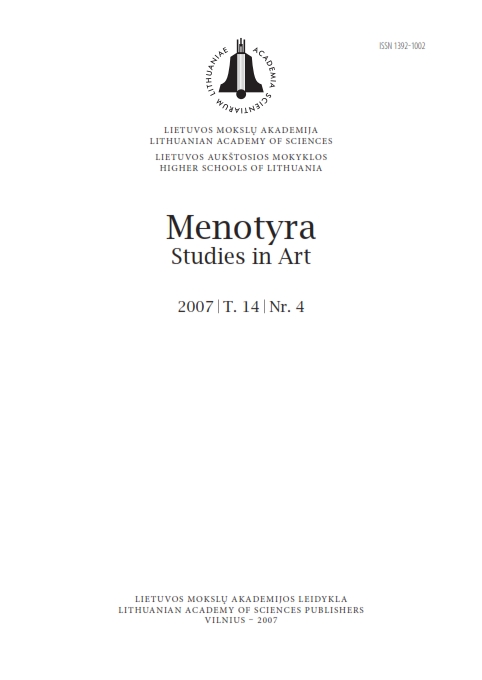Andriaus Olekos-Žilinsko „Šarūnas“ ir tautiškumo problematika 3–4-ojo dešimtmečio sandūros lietuvių kultūroje
Andrius Oleka-Žilinskas’s “Šarūnas” and the issue of nationality in the Lithuanian culture at the turn of the third and fourth decades
Author(s): Šarūnė TrinkūnaitėSubject(s): Theatre, Dance, Performing Arts, Nationalism Studies, Interwar Period (1920 - 1939), WW II and following years (1940 - 1949)
Published by: Lietuvos mokslų akademijos leidykla
Summary/Abstract: One of the most important Lithuanian interwar theater events, “Šarūnas” directed by Andrius Oleka-Žilinskas, was produced at this very time – at the turning point of the third and fourth decades when Lithuanian culture experienced the necessity to renew its artistic language. However, the renewal of stage language inspired by “Šarūnas” evoked a strong opposition of the Lithuanian theater society. Modern theater direction principles and language used in plays such as “Šarūnas” were misunderstood and incorrectly interpreted by the Lithuanian audience that cherished literature theatre traditions, and resulted in miscommunication. Though the broad concept of nationality was formed in the Lithuanian culture of that time, it did not function in the field of theater perception. Plays were accused of disdaining the native land and having dangerous soviet influences, whereas productions like “Šarūnas” were just a modern reflection of nationality, expressing both the vitality of the primitive concept of national theater and the Lithuanian interwar culture’s fear of Russia, which was partly related to the theatrical immaturity of the Lithuanian society of that time.
Journal: Menotyra
- Issue Year: 14/2007
- Issue No: 4
- Page Range: 1-13
- Page Count: 13
- Language: Lithuanian

